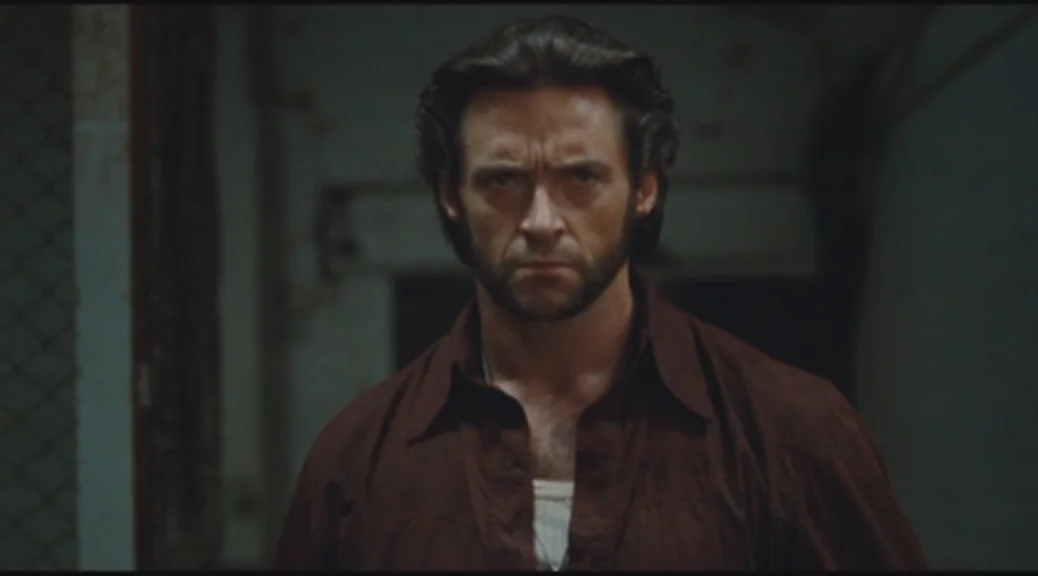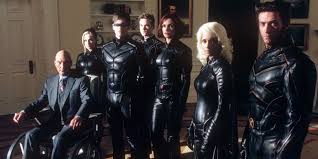🎬 X-Men (2000)

🎬 X-Men (2000)
When X-Men hit theaters in 2000, it marked a pivotal moment in the history of superhero films. Directed by Bryan Singer, the movie was a groundbreaking adaptation of Marvel Comics’ X-Men series, which brought the story of mutants—individuals born with extraordinary abilities—into the mainstream. At a time when superhero films were mostly considered niche or comedic, X-Men not only helped redefine the genre but also paved the way for the flood of superhero blockbusters that followed. With its dynamic cast, compelling themes, and action-packed narrative, X-Men became a cultural touchstone that both changed and solidified the landscape of modern comic book films.
The film’s story revolves around the divide between two factions of mutants: the X-Men, led by Professor Charles Xavier (Patrick Stewart), and the Brotherhood of Evil Mutants, led by Magneto (Ian McKellen). The X-Men, including Cyclops (James Marsden), Wolverine (Hugh Jackman), Storm (Halle Berry), and Rogue (Anna Paquin), are dedicated to peaceful coexistence with humans, while Magneto’s Brotherhood believes that mutants are superior and should dominate the human race. At the center of this conflict is the young mutant Rogue, who struggles with her powers and identity while being drawn into the larger conflict between these two opposing sides.
What sets X-Men apart from many other superhero films is its exploration of identity, acceptance, and prejudice. The theme of mutants as a marginalized group in society serves as a powerful allegory for real-world issues such as racism, discrimination, and intolerance. Throughout the film, characters are faced with the challenge of accepting their abilities while also dealing with the fear and hatred that society has for them. This undercurrent of social commentary elevates the film beyond its genre, giving it emotional depth that resonates with audiences on a personal level. Rogue’s inner turmoil about her powers—she inadvertently absorbs the life force of anyone she touches—mirrors the struggles of anyone who feels different or outcast, making her character a relatable and empathetic figure.
Another standout theme in X-Men is the conflict between Professor Xavier and Magneto, which adds a layer of complexity to the film’s central narrative. While Xavier advocates for peaceful coexistence between mutants and humans, Magneto takes a more militant approach, believing that humanity will never accept mutants and that the only way forward is to assert mutant dominance. Their ideological clash represents the tension between peaceful resistance and violent revolution, with both characters being equally passionate about their respective causes. The dynamic between the two characters is one of the film’s highlights, as it examines the personal history and motivations behind their respective beliefs. Magneto’s experiences during the Holocaust provide a tragic and understandable foundation for his views, making him more than just a villain. Instead, he is portrayed as a complex character driven by a deep sense of loss and a desire to prevent history from repeating itself.
X-Men is also notable for its well-developed and diverse cast of characters. Wolverine, played by Hugh Jackman in his breakout role, stands as one of the most iconic characters in superhero cinema. Jackman’s portrayal of the gruff, complex, and often troubled antihero helped redefine the superhero archetype, bringing a level of depth and nuance to the role that was previously absent from many on-screen heroes. His character arc, which involves his reluctant involvement with the X-Men and his journey toward understanding his role within the larger conflict, is both compelling and emotionally charged. Jackman’s performance as Wolverine would go on to become one of the most beloved in superhero history, and X-Men set the foundation for his portrayal across multiple sequels.
In addition to Wolverine, the film showcases a wide range of mutant characters, each with unique powers and personalities. Storm, portrayed by Halle Berry, brings both strength and elegance to her role, while Cyclops, played by James Marsden, provides a steady and noble presence as the team’s leader. Anna Paquin’s Rogue, who must come to terms with her powers, is the emotional anchor of the film, giving the audience someone to root for and empathize with. Even though the film’s central focus is on the X-Men and their battle with Magneto’s Brotherhood, each character is given moments to shine, and the ensemble cast helps create a diverse and multifaceted narrative that appeals to a wide range of viewers.
The action sequences in X-Men are another standout feature of the film. The film’s budget, while modest compared to later entries in the superhero genre, is used efficiently to bring the powers of the mutants to life. The battles are exciting and inventive, with each mutant’s unique abilities offering fresh and dynamic ways of engaging with the enemy. From Wolverine’s claws to Storm’s control over the weather, the fight sequences feel distinctive and grounded in the abilities of the characters. The film’s special effects, though not as advanced as those seen in later superhero films, are impressive for the time and help enhance the larger-than-life world of the mutants. One of the most memorable scenes is the opening sequence, where the young, powerful mutant Rogue is introduced, showcasing her ability to absorb powers in a high-stakes, visually captivating moment that immediately grabs the audience’s attention.
The film’s pacing, direction, and dialogue also play key roles in its success. Bryan Singer’s direction keeps the plot moving at a brisk pace, balancing action with moments of character development and dialogue that explore the personal stakes of the story. The film never loses sight of its core emotional narrative, and the action never feels gratuitous or overpowering. The screenplay, penned by David Hayter, captures the essence of the comic book series while also making the material accessible to a wider audience. The film is laced with sharp, witty dialogue, which provides moments of levity and humor in the midst of the more serious themes.
On the technical side, X-Men is supported by a strong musical score composed by Michael Kamen. The music helps set the tone for the film, adding intensity to the action sequences and emotional weight to the quieter moments. While not as iconic as some of the other superhero scores that followed, Kamen’s work in X-Men is effective in capturing the sense of grandeur and epic scale that the movie aims to achieve. Additionally, the costume design by Louise Mingenbach helps establish the visual identity of the mutants, with the now-iconic black leather suits adding a sleek, modern touch to the film’s aesthetic. The design choices were a marked departure from the colorful, spandex-filled costumes typically seen in comic books, and while they sparked debate among fans, they ultimately helped bring the characters into a more grounded, realistic world.
In conclusion, X-Men (2000) was a game-changer for the superhero genre. It brought the world of mutants and their struggles to the big screen in a way that felt both authentic and engaging, breaking new ground for comic book adaptations. The film’s exploration of themes such as identity, prejudice, and the complexity of good versus evil gave it emotional weight, while the action-packed sequences and stellar performances helped make it a blockbuster success. X-Men not only introduced audiences to a new breed of superhero but also set the stage for the rise of modern superhero franchises, making it a critical milestone in the evolution of the genre. Its legacy is still felt today, as it remains one of the most important and influential superhero films ever made.










